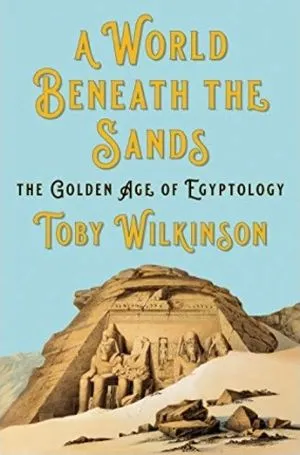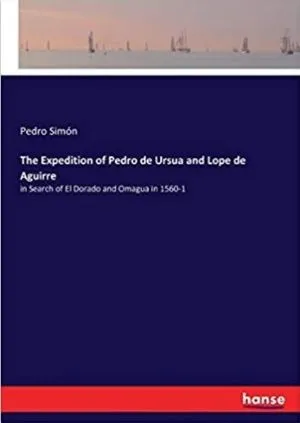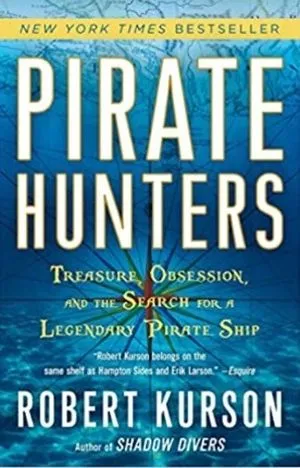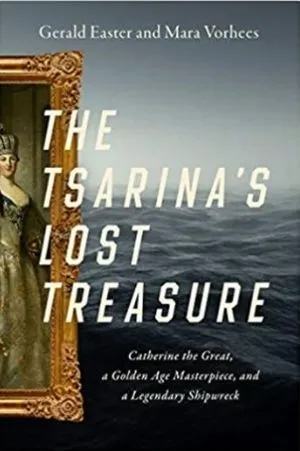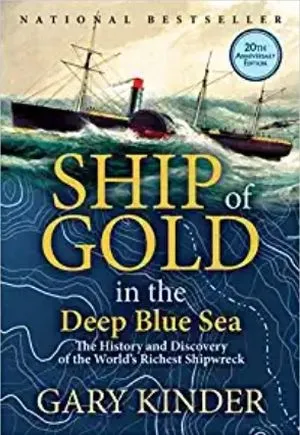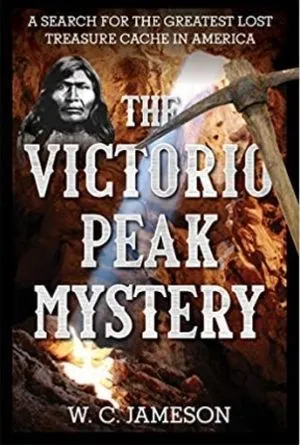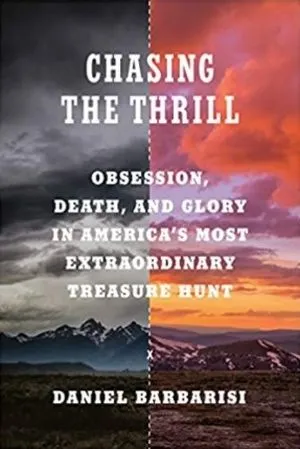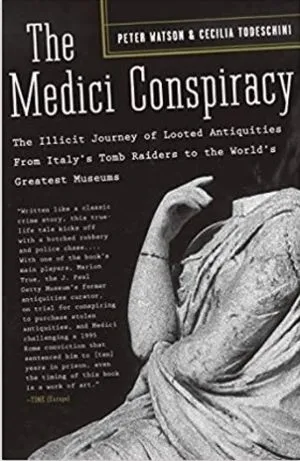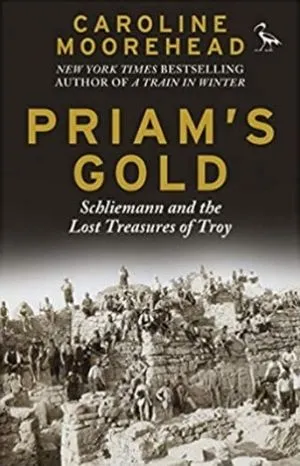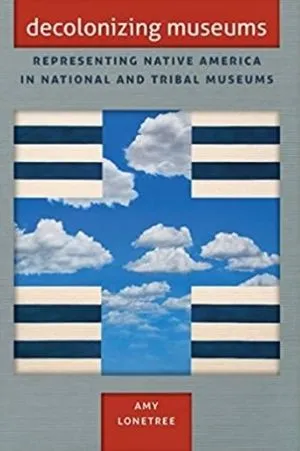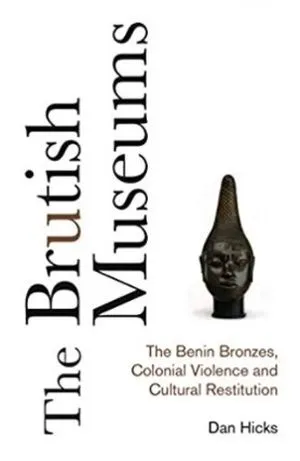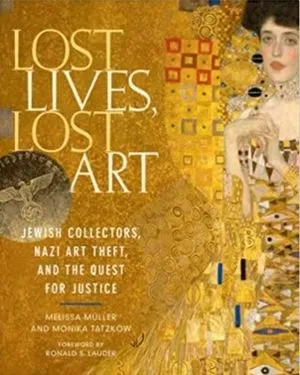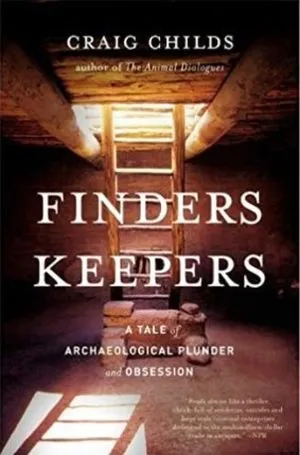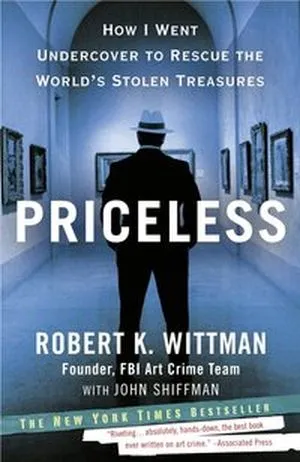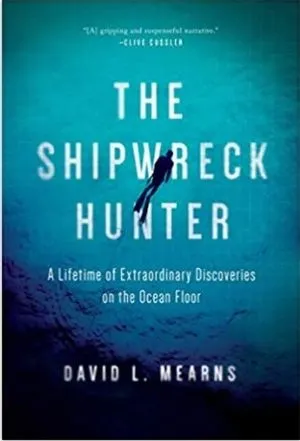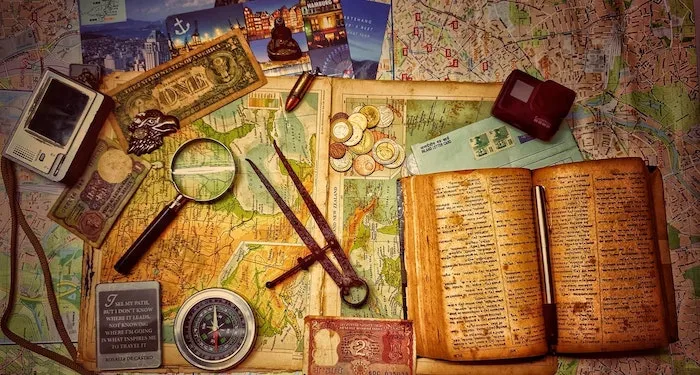
Can You Dig It? Real-Life Treasure Hunt Books Like THE CURSE OF OAK ISLAND
What’s better than going on a treasure hunt? Reading about a treasure hunt from the safety of your own home. You won’t get rich, but you’ll get a lot less dirt in your shoes. Maybe that’s why books like The Curse of Oak Island, about a bottomless pit in Nova Scotia rumored to contain an unspecified treasure, are so popular. So if you want more books like that, you’ve come to the right place!
Just how does a treasure end up “lost,” anyway? As these books show, it isn’t all about buried chests or weird holes in the ground. Most lost treasures were victims of the elements — an ill-timed storm, perhaps, or the inevitable ravages of time — or the whims of greedy humans who thought they had the right to take what they wanted from others. In the latter case, a “lost” treasure may not be entirely lost, just inaccessible to the rightful owners.
While we’re defining terms, let’s take a minute to examine what we mean by “treasure,” too. Sometimes a treasure is as simple as a pile of money, and sometimes it’s rare objects or works of art. If you’re a history buff, the real treasure is the knowledge gained along the way. Whatever form it takes, a treasure hunt can only start if the treasure is valuable — or thought to be valuable — to a lot of people. You may think of your stuffed animal collection as a treasure (and you are absolutely right), but unless they’re stuffed with gold or the pages of Blackbeard’s diary, no one’s going to bother drawing a map to your house on the Declaration of Independence.
Now that we’ve got the pedantry out of the way, here are some exciting books like The Curse of Oak Island. Each tells the story of a lost treasure and how (or if!) it was recovered. As a bonus/to provide greater context about how treasures can become “lost,” I also included books about the role museums have played in supporting looters and treasure hunters, as well as books by men who have devoted their lives to finding objects lost or left behind by others. (And I do mean men: most treasure hunting books seem to be by white dudes. This is especially unfortunate since many lost treasures were stolen from non-white peoples.) It’s like an extra bit of treasure buried right in this very article. Go on and dig in!
Treasure Hunting Books Like The Curse of Oak Island
A World Beneath the Sands: The Golden Age of Egyptology by Toby Wilkinson
The 1922 discovery of King Tut’s tomb was a watershed moment for treasure hunting. But this amazing discovery did not happen overnight or out of the blue: it was the culmination of over a century of European obsession and plunder. A World Beneath the Sands recounts their most notable expeditions and finds/robberies.
The Expedition of Pedro de Ursúa & Lope de Aguirre in Search of El Dorado and Omagua in 1560-1 by Pedro Simón (Translated by William Bollaert)
El Dorado, the famed (and nonexistent — sorry!) city of gold supposedly hidden in the South American jungle, has fascinated treasure hunters for centuries. This early account by historian Pedro Simón follows two Spanish conquistadors as they travel to Peru and fail spectacularly in their gold-seeking mission.
Pirate Hunters: Treasure, Obsession, and the Search for a Legendary Pirate Ship by Robert Kurson
Pirate booty is probably the first thing you think of when you hear the phrase “lost treasure.” Despite the Golden Age of Piracy lasting a maximum of eighty years (or even as little as ten), pirates continue to play an outsized role in pop culture. Pirate Hunters tells the tale of two men who risk it all to reconstruct an obscure pirate’s life and locate his sunken ship.
The Tsarina’s Lost Treasure: Catherine the Great, a Golden Age Masterpiece, and a Legendary Shipwreck by Gerald Easter and Mara Vorhees
Catherine the Great, empress of Russia, loved art. Hey, who can blame her? Art is neat. But when a ship carrying her latest acquisitions went down in the Baltic Sea, the priceless paintings on board were thought lost forever. The Tsarina’s Lost Treasure relates both the history of that artwork and the efforts to recover it.
Ship of Gold in the Deep Blue Sea: The History and Discovery of the World’s Richest Shipwreck by Gary Kinder
When the SS Central America went down in 1857, it was carrying approximately All Of The Gold. Its location might still be lost if not for the efforts of one really determined guy from Ohio. Originally published in 1998, a new edition of Ship of Gold in the Deep Blue Sea is due out in July 2021.
The Victorio Peak Mystery: A Search for the Greatest Lost Treasure Cache in America by W.C. Jameson
The mountains of New Mexico supposedly harbor one of the greatest treasures known to man. Think Scrooge McDuck’s vault, but in a cave. The man who claimed to have found it was later murdered, and the U.S. Army may or may not have absconded with it decades ago. Where did this treasure come from, and what really happened to it? No one knows, but learning its bizarre story is reward enough (though the money would be cool too).
Chasing the Thrill: Obsession, Death, and Glory in America’s Most Extraordinary Treasure Hunt by Daniel Barbarisi
The hunt for Forrest Fenn’s Rocky Mountain treasure apparently ended in June 2020. However, there is still plenty to say about wealthy (and very probably unscrupulous) art dealer Fenn’s reasons for starting the hunt, and why humans take such complete leave of our senses at the slightest possibility of finding treasure.
Books About Museums and Lost Treasures
The Medici Conspiracy: The Illicit Journey of Looted Antiquities from Italy’s Tomb Raiders to the World’s Greatest Museums by Peter Watson and Cecilia Todeschini
How do museums acquire the artifacts in their exhibits? All too often, the answer is “not legally.” Journalist Peter Watson started by investigating the case of ancient Italian vases found in a smuggler’s swimming pool; he ended up tracking countless stolen treasures to some of Europe and America’s most prestigious museums.
Priam’s Gold: Schliemann and the Lost Treasures of Troy by Caroline Moorehead
Heinrich Schliemann made a name for himself by claiming he discovered Homer’s Troy (of “Trojan horse” fame). Whether he actually did that is up for debate. What is not up for debate is the fact that he straight-up stole a bunch of stuff from the site, which is now in the hands of Moscow’s Pushkin Museum. And they’re not sharing.
Decolonizing Museums: Representing Native America in National and Tribal Museums by Amy Lonetree
Traditionally, museums have held Indigenous cultures and opinions in low regard, taking whatever artifacts they wanted and depicting Native Americans in harmful ways. Decolonizing Museums explores how that has changed in recent years, as museums begin to consult Indigenous communities about their exhibits and Indigenous groups open museums of their own.
The Brutish Museums: The Benin Bronzes, Colonial Violence, and Cultural Restitution by Dan Hicks
British colonial rule over Nigeria ended in 1960, but the British Museum still claims ownership of countless treasures stolen from there and other former colonies. Those treasures include hundreds of the Benin Bronzes, an expansive collection of metal sculptures and reliefs. Museum curator Hicks explains how British colonialists took the sculptures, how Britain continues to profit off the thefts, and how the damage they caused will never heal until they return what their ancestors took.
Lost Lives, Lost Art: Jewish Collectors, Nazi Art Theft, and the Quest for Justice by Melissa Müller and Monika Tatzkow
It’s impossible to talk about lost treasures without mentioning the horrific, irreparable damage inflicted by the Third Reich. This book relates the stories of fifteen Jewish art collectors whose works were stolen by the Nazis. Some were killed in concentration camps, others were able to recover their paintings, and still others remain locked in battles with museums and collectors who believe the art belongs to them.
Books about Treasure Hunting
Finders Keepers: A Tale of Archaeological Plunder and Obsession by Craig Childs
Is treasure hunting legal? More importantly, is it ethical? What would (and should) you do if you find a lost treasure? Through interviews and personal stories, Finders Keepers reveals the complex, morally fraught decisions archaeologists and treasure hunters make on a daily basis, and why “doing the right thing” isn’t as simple as Harrison Ford makes it look.
Priceless: How I Went Undercover to Rescue the World’s Stolen Treasures by Robert K. Wittman with John Shiffman
Wittman had the job we all wish we could have: traveling the world and recovering all kinds of lost treasures, from stolen paintings to locks of an American president’s hair. In Priceless, he relates his most daring, most exciting, and most amusing adventures.
The Shipwreck Hunter: A Lifetime of Extraordinary Discoveries on the Ocean Floor by David L. Mearns
If you’re like me, you grew up thinking that the Titanic — both the story of its loss and its eventual rediscovery — was the coolest thing ever. Needless to say, a lot of risk and effort go into making such discoveries. Mearns, a marine geologist who made a career out of searching for shipwrecks, takes readers behind the scenes and beneath the seas to show us landlubbers what it’s really like.
Can’t get enough adventure books? Try these posts next:


